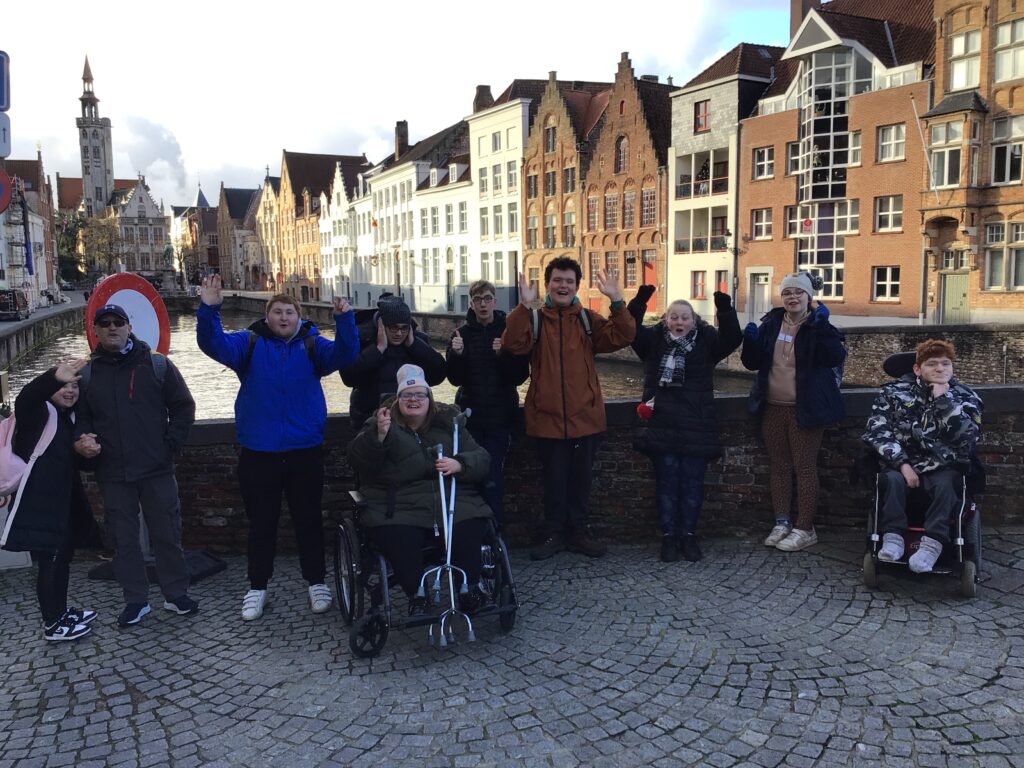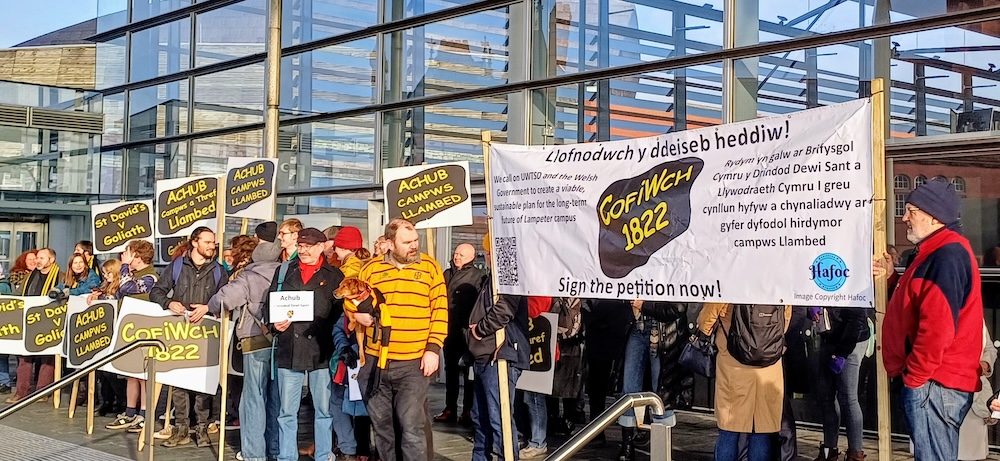Kirsty Williams, former Welsh Education Minister, Taith Board member, and Chair of the Taith Advisory Board, tells us about Taith, what the programme has achieved, and why it has done so much more for Wales than simply act as a stopgap for Erasmus+.
Kirsty Williams, former Welsh Education Minister, Taith Board member, and Chair of the Taith Advisory Board, tells us about Taith, what the programme has achieved, and why it has done so much more for Wales than simply act as a stopgap for Erasmus+.
Despite the long build-up and countless media articles second guessing what might be discussed, the deal that came out of the recent EU-UK summit took a lot of people by surprise. As expected, there was an agreement on youth mobility, but the announcement that the UK would be rejoining Erasmus+ came out of the blue. The UK government had been pushing back on this for months, instead touting the Turing Scheme as the long-term international exchange option for the UK.
This is personal for me. I was the Minister for Education in Wales when the UK Government made the decision to leave Erasmus+. Together with colleagues in the other devolved nations, I desperately tried to avert what we felt was a hugely damaging decision. As a former international exchange student myself, I understand first-hand the life-changing impact these opportunities can have. When it became clear that the UK was being unilaterally withdrawn from Erasmus+, I and colleagues in the Welsh Government set about creating a Welsh alternative – what we now call Taith.
Syniadau uchelgeisiol, awdurdodol a mentrus.
Ymunwch â ni i gyfrannu at wneud Cymru gwell.
My aim was to create a programme which filled the gaps left by the withdrawal from Erasmus+. I wanted to ensure that organisations across Wales could maintain their activities and continue to offer the same international exchanges as they had been able to through Erasmus+.
I very quickly realised that this was the wrong approach. As Taith started to take shape, it became clear that we were not really creating an alternative for Erasmus+, we were creating a uniquely Welsh programme, designed specifically for people in Wales. Yes, we filled the gap left by the withdrawal from Erasmus+, but we did so much more than that. We created something special, which has had a profound impact on the lives of people and communities across Wales.
The impact of our Taith project has exceeded our expectations and contributed to our aim of reducing barriers for our clients with lived experience of complex disadvantage. As nontraditional participants, many of whom are disengaged with mainstream education, they have now found a passion to continue their adult education journey, or in their words the start of a life-changing journey! Lucy Leighton, Community Services Delivery Manager, St Giles Trust
Erasmus+ is commonly seen as a programme for higher education, though it also funds schools, youth, further education, vocational education and training, and adult education. Significant work has been undertaken to make the programme more inclusive, but it is still largely seen as one for university students. This is reflected in recent media discussing the agreement to rejoin – it is almost solely focused on universities and university students.
Taith has worked hard to develop an accessible, inclusive programme that works not only for higher education, but for all the education and learning sectors across Wales. This has only been possible through ongoing dialogue with stakeholders across the sectors to understand the barriers they faced in engaging with international exchange in the past, and the regular review and development of the programme in response to feedback.
As a result, there has been a huge level of interest in Taith, in particular from the schools, youth and adult education sectors. Comparison with data kindly shared by the British Council (the delivery agency for Erasmus+ in the UK), shows that engagement with Taith is significantly higher than with Erasmus+ in Wales. Not only have there been greater numbers of organisations and individuals involved in international exchange through Taith, but also an increase in engagement from organisations supporting individuals who face the greatest challenges and barriers.
Pupil referral units, special schools and charities working with the most marginalised in society have been able to take young people on genuinely life-changing international exchanges. Many of these organisations had never considered international exchange before the creation of Taith. Homeless young people, adults with lived experience of substance misuse, mental health and the justice system, children with severe and complex disabilities and additional learning needs have all been given the opportunity to travel and learn overseas because of Taith. Many of them had never left their hometown before, let alone travelled abroad. The stories showcasing the impact of these opportunities on their lives, and in many cases on the lives of their families, are humbling and awe-inspiring in equal measure.
These journeys weren’t just about exploring new countries, but about proving that with the right support, every child, regardless of their needs, can embrace the world and shine. Ryan Sheppard, Teacher, Portfield Special School
Had someone told me four years ago that we would be rejoining Erasmus+, I would have thought this an unalloyed positive. Now I’m not so sure. There are undoubted benefits – access to Europe-wide collaborations and projects, stronger ties with Europe, access to significantly greater funding levels than Wales alone can offer. As someone who fought so hard to keep Wales in Erasmus+, I cannot help but feel pleased and relieved that the government has finally seen sense.
Despite this, the decision has left me feeling conflicted.
One of the greatest strengths of Erasmus+ is one of its biggest weaknesses. Bringing together the countries and peoples of a continent for a shared endeavour is hugely powerful. But operating on such a large scale makes development and improvement challenging. There are many powerful voices in the room, often with competing agendas and priorities. What works for one country may not work for another, and compromise must be reached to enable action. Taith does not have the benefit of operating on a large scale – the name recognition, the powerful allies, the large budget. But what it does have is the ability to engage with stakeholders and respond to feedback, to make changes to improve the programme and make it more accessible and inclusive, to shape a programme which gives equal weight and voice to all the education sectors and which truly works for Wales and its people.
Gofod i drafod, dadlau, ac ymchwilio.
Cefnogwch brif felin drafod annibynnol Cymru.
Many organisations in Wales have shared that if given the choice, they would choose Taith over Erasmus+. There are myriad reasons for this but some include the support Taith offers to those with little or no experience of international exchange, the flexibility and responsiveness of the programme, the understanding of the sectors and the challenges they face, the genuine commitment to access and inclusion.
My plea to those making the big decisions on the future of international exchange is that they are willing to listen and learn from Taith and from what the programme has achieved in a very short time. Wales may be a small nation, but we are innovative, we are forward thinking, and we believe in a world which is fair, equitable and inclusive. Taith has changed the lives of people in Wales. I urge those involved in negotiating the rejoining of the UK with Erasmus+ to listen and learn from what we have achieved here in Wales.
This trip has wholeheartedly changed my life. I’ve evolved and come out of this experience a better man. It’s given me a new perspective, and it’s changed my outlook on life. How lucky I am to have a second chance at life. I’ve felt true happiness for the first time in a long time. Youth participant, GISDA (a charity supporting homeless and vulnerable young people in North Wales)
One of the main sticking points over the agreement on rejoining Erasmus+ is that it was felt to be unequal – more people wanted to come to the UK to learn and study than wanted to leave the UK to learn and study in Europe. Taith has shown that by listening, engaging and understanding the challenges and barriers that individuals and organisations face, and by taking clear and material action to address them, it is possible to exponentially increase the interest and uptake of these opportunities and ensure a truly reciprocal arrangement.
I would also urge the Welsh Government to consider a future iteration of Taith. Where my original aim was that Taith should fill the gap left by Erasmus+, I am now concerned that Erasmus+ will not fill the gap left by Taith. That those with the greatest to gain will no longer have access to these life-changing opportunities. Taith has opened the door of international exchange to many organisations in Wales who had never felt able to apply to Erasmus+. It would be a tragedy if the UK rejoining Erasmus+ leads to that door being once again closed. Taith and Erasmus+ can exist side-by-side, complementing and enhancing each other. An ongoing commitment to Taith would demonstrate the Welsh Government’s commitment to the people of Wales, in particular to those most marginalised by society and for whom an international exchange can be genuinely life changing.
All articles published on the welsh agenda are subject to IWA’s disclaimer. If you want to support our work tackling Wales’ key challenges, consider becoming a member.





